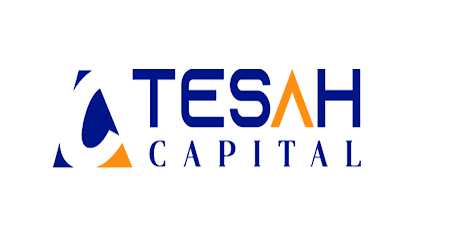Ghana’s financial markets presented a mixed outlook last week, with strong investor interest in Treasury bills juxtaposed against a weakening local currency and a fluctuating secondary bond market.
However, optimism remained visible on the Ghana Stock Exchange, which posted a notable rise on the back of gains from key equities.
Investor demand for Treasury bills surged at the latest primary auction, with the government raising GH₵9.4 billion—significantly above its GH₵6.5 billion target.
This represented a 43.59% oversubscription and signaled strong confidence in short-term government securities.
The auction results showed high acceptance rates, with 93.45% of 91-day bills, 34.90% of 182-day bills, and 99.13% of 364-day bills accepted by the government.
Yields on all three tenors declined during the auction.
The 91-day Treasury bill rate dropped by 10 basis points to 28.41%, the 182-day rate fell by 17 basis points to 28.90%, and the 364-day rate dipped by 4 basis points to 30.37%.
The downward movement in yields suggests favorable borrowing conditions for the government and indicates continued investor confidence in Ghana’s short-term debt instruments.
On the secondary market, however, trading volumes on the Ghana Fixed Income Market (GFIM) dipped by 3.6% over the course of the week, reaching a total turnover of GH₵4.2 billion.
Treasury bills remained the dominant asset class, accounting for 70.28% of total trading volumes.
New Government of Ghana notes and bonds contributed 21.44%, while Sell/Buy Back trades made up 8.26% of the market activity.
Corporate bonds continued to occupy a marginal share of the market, representing just 0.01% of overall trades.
Meanwhile, the Ghanaian cedi weakened across the board on the interbank foreign exchange market.
Against the US dollar, the cedi depreciated by 1.31%, ending the week at GH₵15.3000.
It also fell by 0.79% against the British pound to close at GH₵19.0003, and declined by 0.19% against the euro, settling at GH₵15.9012, based on Bank of Ghana midrates.
On the open market, indicative quotes were slightly higher, with the cedi trading at GH₵15.20 to the dollar, GH₵19.09 to the pound, and GH₵15.88 to the euro.
In contrast to the subdued bond and currency performance, the Ghana Stock Exchange (GSE) delivered a strong showing.
The GSE Composite Index rose by 3.01% to close the week at 5,229.44 points, reflecting a year-to-date return of 6.97%.
This bullish momentum was driven by gains in the share prices of major financial and telecom firms, including Ecobank Transnational Inc. (ETI), ACCESS Bank, CAL Bank, MTN Ghana, Enterprise Group Ltd (EGL), Guinness Ghana Breweries Ltd (GGBL), Ecobank Ghana Ltd (EGH), and NewGold (GLD).
ETI shares surged by 14.29% to close at GH₵0.40, ACCESS Bank rose by 10% to GH₵5.72, while CAL Bank increased by 7.89% to GH₵0.41.
MTN Ghana also gained 3.77%, closing at GH₵2.75. EGL, GGBL, EGH, and GLD recorded moderate gains of 3.54%, 1.82%, 1.54%, and 0.20% respectively.
Despite the market gains, trading activity slowed considerably.
The volume of shares traded declined by 60.10%, from over 7.5 million to 3 million shares.
The total value of shares traded stood at GH₵3.3 million by the end of the week.
Looking ahead, Tesah Capital analysts expect financial and ICT sector stocks to remain key drivers of the GSE’s performance.
While investor confidence in short-term government instruments remains strong, continued depreciation of the cedi may impact foreign participation in the domestic market.
Market watchers will be closely monitoring upcoming auctions and macroeconomic indicators for direction in the weeks to come.
- Bawumia, NPP kick off nationwide thank you tour - 21 April 2025
- PURC Commissioners pay tribute to late Prof. Akabzaa - 21 April 2025
- Who will succeed Pope Francis ? - 21 April 2025

